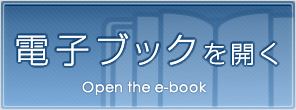「人道研究ジャーナル」創刊号 page 20/216
このページは 「人道研究ジャーナル」創刊号 の電子ブックに掲載されている20ページの概要です。
秒後に電子ブックの対象ページへ移動します。
「電子ブックを開く」をクリックすると今すぐ対象ページへ移動します。
概要:
Journal of Humanitarian Studies Vol. 1, 2012Improving humanitarian standards and valuesThe IFRC will contribute to“changing minds”through building-up a culture of non-violence and will fosterpartici....
Journal of Humanitarian Studies Vol. 1, 2012Improving humanitarian standards and valuesThe IFRC will contribute to“changing minds”through building-up a culture of non-violence and will fosterparticipatory processes which promote social integration across a broad spectrum of services includingHIV stigma reduction, anti-trafficking in human beings, promoting youth as agents of behaviour change,and providing care for the elderly.The IFRC will also implement an Organisational Capacity Assessment and Certification mechanism whichwill allow National Red Cross and Red Crescent Societies to assess and measure their performance againstglobal standards, providing the basis for tailor-made development support.The Learning and Knowledge Sharing Network has been created to boost access to learning and trainingand to promote analysis and research on humanitarian and development concerns of importance to the RedCross Red Crescent.Enhancing Red Cross Red Crescent influence and growing support for our workAdvocating on behalf of vulnerable people is part of the IFRC’s long history and daily practice. Consistentwith Strategy 2020 and the Humanitarian Diplomacy Policy, the organization will focus on addressingthe humanitarian consequences of the increasing frequency and severity of disasters, bringing attention toinequitable access to health and promoting a culture of non-violence. To influence the humanitarian agendathrough governments, opinion leaders, and policy makers, the IFRC will invest in building the confidenceand capacities of the leadership of National Societies to address key issues in public policies related tohumanitarian and development.Through effective communication and advocacy initiatives, including the provision of accurate andtimely information during emergencies, the IFRC will dedicate special effort to profiling the impact oncommunities as a result of Red Cross Red Crescent activities. Particular attention will be given to effortsthat allow communities to participate in decision making and facilitate beneficiary communications. Theorganization will also maximize the potential of social media to influence behaviour around inequality andthe consequences of urban risk, violence and migration.The IFRC will work closely with National Societies in resource mobilization and will enter into newexternal partnerships where the organization and its member can add unique value. We will also createand sustain a knowledge management strategy to exploit and exchange resource mobilization skills andcompetencies that exist across the IFRC.Bridging the digital divideMany Red Cross and Red Crescent National Societies are harnessing the power of technology to servethe world’s most vulnerable communities. For example, in Haiti, the IFRC reached more than two millionpeople with text messages about cholera prevention and other life-saving tips. However, access to theseopportunities is not equal. In poorer countries, equipment can be prohibitively expensive, skills difficultto come by, infrastructure lacking and the price of connectivity placing it beyond reach. Many NationalSocieties closest to vulnerable communities are deprived of the benefits of modern technology. We callthis the digital divide.In response, the IFRC has launched the Digital Divide Initiative. To support National Societies in havinga greater impact in serving vulnerable communities, it aims to enable all 187 National Societies to benefitfrom the best of modern technology through a capacity building and skills sharing programme, as well asthe development of a global Red Cross Red Crescent technology community.Improved information communication technology, enabling National Societies to cross the digital divide,will have an impact in three core areas: It will improve communication, connectivity and knowledgesharing. It will Improve training for National Society staff and volunteers. It will improve vital NationalSociety systems that in turn enhance effectiveness and transparency.18人道研究ジャーナルVol. 1, 2012

